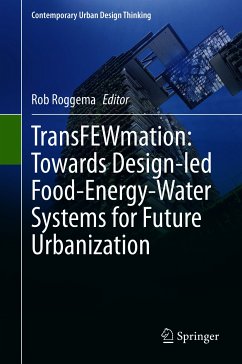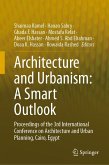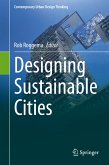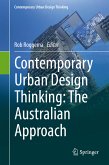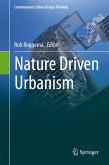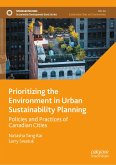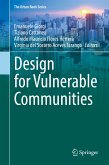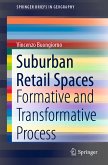TransFEWmation: Towards Design-led Food-Energy-Water Systems for Future Urbanization (eBook, PDF)
Redaktion: Roggema, Rob
73,95 €
73,95 €
inkl. MwSt.
Sofort per Download lieferbar

37 °P sammeln
73,95 €
Als Download kaufen

73,95 €
inkl. MwSt.
Sofort per Download lieferbar

37 °P sammeln
Jetzt verschenken
Alle Infos zum eBook verschenken
73,95 €
inkl. MwSt.
Sofort per Download lieferbar
Alle Infos zum eBook verschenken

37 °P sammeln
TransFEWmation: Towards Design-led Food-Energy-Water Systems for Future Urbanization (eBook, PDF)
Redaktion: Roggema, Rob
- Format: PDF
- Merkliste
- Auf die Merkliste
- Bewerten Bewerten
- Teilen
- Produkt teilen
- Produkterinnerung
- Produkterinnerung

Bitte loggen Sie sich zunächst in Ihr Kundenkonto ein oder registrieren Sie sich bei
bücher.de, um das eBook-Abo tolino select nutzen zu können.
Hier können Sie sich einloggen
Hier können Sie sich einloggen
Sie sind bereits eingeloggt. Klicken Sie auf 2. tolino select Abo, um fortzufahren.

Bitte loggen Sie sich zunächst in Ihr Kundenkonto ein oder registrieren Sie sich bei bücher.de, um das eBook-Abo tolino select nutzen zu können.
This book discusses a spectrum of approaches to designing the food-energy-water nexus at different spatial-urban scales. The book offers a framework for working on the FEW-nexus in a design-led context and integrates the design of urban neighbourhoods and regions with methodologies how to simultaneously engaging residents and stakeholders and evaluating the propositions in a FEW-print, measuring the environmental impact of the different designs. The examples are derived from on the ground practices in Sydney, Tokyo, Detroit, Amsterdam and Belfast.
- Geräte: PC
- ohne Kopierschutz
- eBook Hilfe
- Größe: 19.91MB
Andere Kunden interessierten sich auch für
![Architecture and Urbanism: A Smart Outlook (eBook, PDF) Architecture and Urbanism: A Smart Outlook (eBook, PDF)]() Architecture and Urbanism: A Smart Outlook (eBook, PDF)161,95 €
Architecture and Urbanism: A Smart Outlook (eBook, PDF)161,95 €![Designing Sustainable Cities (eBook, PDF) Designing Sustainable Cities (eBook, PDF)]() Designing Sustainable Cities (eBook, PDF)73,95 €
Designing Sustainable Cities (eBook, PDF)73,95 €![Contemporary Urban Design Thinking (eBook, PDF) Contemporary Urban Design Thinking (eBook, PDF)]() Contemporary Urban Design Thinking (eBook, PDF)89,95 €
Contemporary Urban Design Thinking (eBook, PDF)89,95 €![Nature Driven Urbanism (eBook, PDF) Nature Driven Urbanism (eBook, PDF)]() Nature Driven Urbanism (eBook, PDF)137,95 €
Nature Driven Urbanism (eBook, PDF)137,95 €![Prioritizing the Environment in Urban Sustainability Planning (eBook, PDF) Prioritizing the Environment in Urban Sustainability Planning (eBook, PDF)]() Natasha Tang KaiPrioritizing the Environment in Urban Sustainability Planning (eBook, PDF)32,95 €
Natasha Tang KaiPrioritizing the Environment in Urban Sustainability Planning (eBook, PDF)32,95 €- -29%11
![Design for Vulnerable Communities (eBook, PDF) Design for Vulnerable Communities (eBook, PDF)]() Design for Vulnerable Communities (eBook, PDF)121,95 €
Design for Vulnerable Communities (eBook, PDF)121,95 € ![Suburban Retail Spaces (eBook, PDF) Suburban Retail Spaces (eBook, PDF)]() Vincenzo BuongiornoSuburban Retail Spaces (eBook, PDF)40,95 €
Vincenzo BuongiornoSuburban Retail Spaces (eBook, PDF)40,95 €- -23%11
-
-
This book discusses a spectrum of approaches to designing the food-energy-water nexus at different spatial-urban scales. The book offers a framework for working on the FEW-nexus in a design-led context and integrates the design of urban neighbourhoods and regions with methodologies how to simultaneously engaging residents and stakeholders and evaluating the propositions in a FEW-print, measuring the environmental impact of the different designs. The examples are derived from on the ground practices in Sydney, Tokyo, Detroit, Amsterdam and Belfast.
Dieser Download kann aus rechtlichen Gründen nur mit Rechnungsadresse in A, B, BG, CY, CZ, D, DK, EW, E, FIN, F, GR, HR, H, IRL, I, LT, L, LR, M, NL, PL, P, R, S, SLO, SK ausgeliefert werden.
Produktdetails
- Produktdetails
- Verlag: Springer International Publishing
- Seitenzahl: 342
- Erscheinungstermin: 27. Januar 2021
- Englisch
- ISBN-13: 9783030619770
- Artikelnr.: 61092408
- Verlag: Springer International Publishing
- Seitenzahl: 342
- Erscheinungstermin: 27. Januar 2021
- Englisch
- ISBN-13: 9783030619770
- Artikelnr.: 61092408
- Herstellerkennzeichnung Die Herstellerinformationen sind derzeit nicht verfügbar.
Prof. Dr. ir. Rob Roggema is Professor Spatial Transformations in the Research Centre for the Built Environment 'NoorderRuimte', Hanze University of Applied Sciences in Groningen, the Netherlands. He is Landscape Architect and an international design expert in the field of sustainable urbanism, climate adaptation, energy landscapes and urban agriculture. He held positions at several universities in the Netherlands and Australia, provinces and municipalities, and design firms. Rob developed the Swarm Planning concept, a dynamic way to design the city, to prepare it for future climate change. Rob's research focuses on the reciprocal city, investigating resilience, adaptation and circularity in urban design. Recent design concepts Rob has conceived are the Double Defence, a proposition for a second row of barrier islands, protecting the Dutch coast against storm surges; the Floodable Landscape for a region under threat of flooding; Bushfire Resilient Bendigo, in which the design anticipates bushfires through creating a protective shield and slowly moving the town away from the fire; the FoodRoofRio, a roof garden with an aquaponic system growing food for the entire family in 'Cantagalo' favela, Rio de Janeiro; and the Sydney Barrier Reef, a refuge for nature fleeing the Great Barrier Reef, which is at risk of disappearing as result of bleeching and simultaneously protects the highly valued real estate of the Sydney coast against future cyclones. Rob has facilitated and designed over 30 design charrettes across the globe in which citizens, academics, governments and industries are indulged in the design process of complex spatial problems. He has written three books about climate adaptation and design, four about urban agriculture and one about design charrettes. Furthermore, he wrote books about the FoodRoofRio and Design after Tsunami in Japan. He is series editor of the book series 'Contemporary Urban Design Thinking' and editor in chief of the journal'Smart and Sustainable Built Environments (SASBE)'.
Part 1. Framework.- Chapter 1 The Moveable Nexus, Transforming Thinking on Cities.- Chapter 2 A moveable Nexus: framework for food-energy-water design and planning.- Chapter 3 M-NEX methodology: a design-led approach to the FEW-Nexus.- Part II Design for food in M-Nex.- Chapter 4 Nature driven planning for the FEW-Nexus in Western Sydney.- Chapter 5 The flexible scaffold: design praxis in the FEW-nexus.- Chapter 6 Spatialised method for analysing the impact of food.- Chapter 7 Synergetic planning and designing with urban FEW-flows: lessons from Rotterdam Nico Tillie.-Chapter 8 Le Fouture de Groningen; towards transformational food-positive landscapes.- Chapter 9 Mapping the FEW-Nexus across cascading scales: contexts for Detroit from region to city.- Chapter 10 Redesigning the Urban Food Life through the Participatory Living Lab Platform - Practices in Suburban Areas of the Tokyo Metropolitan Region.-Chapter 11 The Regenerative City - positive opportunities of coupling urban energy transition with added values to people and environment.- Chapter 12 Pig farming vs. Solar farming: exploring novel opportunities for the energy transition.- Chapter 13 Proposal for a database of food-energy-water-nexus projects.- Chapter 14 Linking urban food system and environmental sustainability for the resilience of the cities: the case of Tokyo.- Chapter 15 TransFEWmotion: designing urban metabolism as an M-NEX.- Index.
Part 1. Framework.- Chapter 1 The Moveable Nexus, Transforming Thinking on Cities.- Chapter 2 A moveable Nexus: framework for food-energy-water design and planning.- Chapter 3 M-NEX methodology: a design-led approach to the FEW-Nexus.- Part II Design for food in M-Nex.- Chapter 4 Nature driven planning for the FEW-Nexus in Western Sydney.- Chapter 5 The flexible scaffold: design praxis in the FEW-nexus.- Chapter 6 Spatialised method for analysing the impact of food.- Chapter 7 Synergetic planning and designing with urban FEW-flows: lessons from Rotterdam Nico Tillie.-Chapter 8 Le Fouture de Groningen; towards transformational food-positive landscapes.- Chapter 9 Mapping the FEW-Nexus across cascading scales: contexts for Detroit from region to city.- Chapter 10 Redesigning the Urban Food Life through the Participatory Living Lab Platform - Practices in Suburban Areas of the Tokyo Metropolitan Region.-Chapter 11 The Regenerative City - positive opportunities of coupling urban energy transition with added values to people and environment.- Chapter 12 Pig farming vs. Solar farming: exploring novel opportunities for the energy transition.- Chapter 13 Proposal for a database of food-energy-water-nexus projects.- Chapter 14 Linking urban food system and environmental sustainability for the resilience of the cities: the case of Tokyo.- Chapter 15 TransFEWmotion: designing urban metabolism as an M-NEX.- Index.
